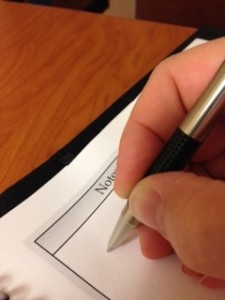I served for years as the clerk for an elected body of local government officials. Their meeting agendas were advertised in advance, they were open to the public, and were held twice each month for the purpose of conducting business of the entity – voting on legislation, receiving financial and progress reports from staff members, and hearing from constituents about various issues. I was responsible for the meeting minutes, documenting everything that took place during these meetings and transcribing them into a document that became part of the permanent record of the entity to be kept for legal and historic purposes.
As can happen whenever one or more politicians are gathered together, these meetings were often contentious, full of debate and political posturing. It was always amazing to me how many times the minutes of the meeting were challenged by one of the participants, and the tape recording or video of the meeting had to be reviewed to confirm what was in the written record I had prepared. Whether they were good, bad, or very, very ugly I always did my best to accurately reflect the decisions made during these meetings and the discussion and actions that led to those decisions.
If you are holding a meeting to make an important decision or establish a future plan of action, it vitally important that you have a note-taker. This should be someone whose sole purpose is to accurately record the decisions made during the meeting and identify future actions that need to occur, the owners of those actions, and dates and deadlines when those actions need to occur. Finally, they need to transcribe those notes and distribute them to all stakeholders so that everyone is aware and in agreement on the action plans resulting from your meeting.
